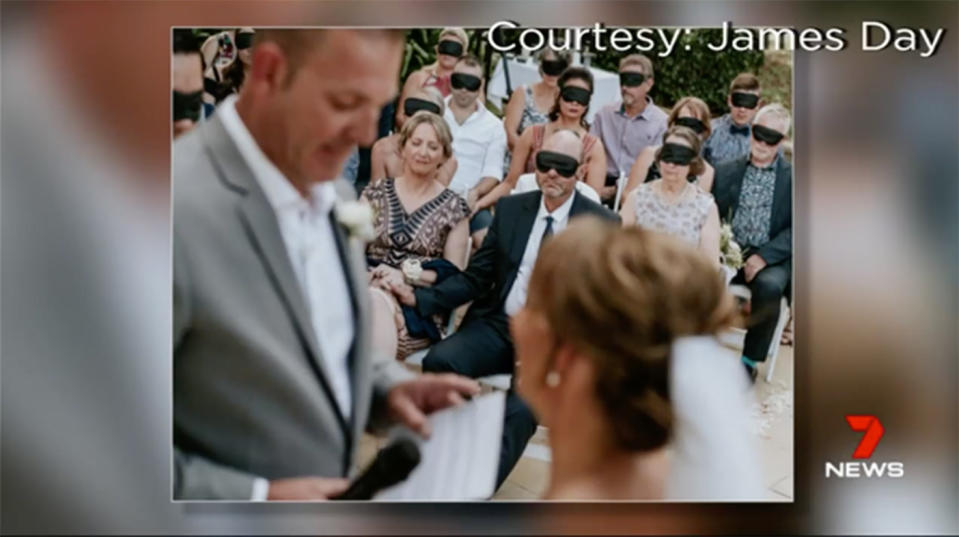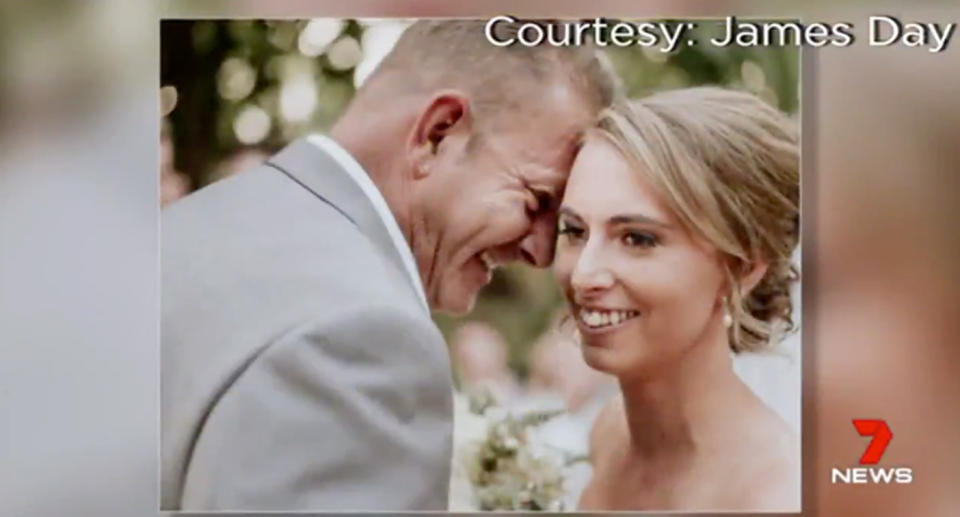Blind bride's unusual request of wedding guests
A Melbourne couple has tied the knot on the Sunshine Coast with an unusual request for their guests.
Family and friends were blindfolded so they could experience the moment just like the bride who is blind.
Robbie and Stephanie Campbell (nee Agnew) wanted guests to experience the wedding the way she would – without sight.
Ms Campbell, 32, asked the 54 wedding guests to wear blindfolds during the vows on November 25.
She was diagnosed with cone-rod retinal dystrophy at the age of 19 and lost almost all of her vision when she was 27. It is a hereditary eye disorder that leads to vision impairment.
The blindfolds were a way to honour Ms Campbell, her mum and her two brothers who also have the same condition.

“The guests all seemed to really get behind the idea,” the couple’s friend and photographer James Day said.
In another unique element, an owl flew down the aisle and landed on Ms Campbell’s hand to deliver the rings.
The wedding team used non-visual methods to help Ms Campbell remember her special day.
“I ended up choosing 10 different fabrics with 10 different essential oils infused on them and having different people at different times of the day hand them to Steph so that when she holds those fabrics or smells those scents later, she will be taken back to that moment,” Mr Day said.
“For the video we’ve written a really detailed description of exactly what’s happening,” TJ Tolhoek, from Lemon Tree Film House, said.

“People’s expressions, facial expressions as well as the actual view and landscape.”
Ms Campbell, a former real estate agent, hopes to inspire others who have lost or are losing their sight.
“People might tell you that you can’t do things,” Ms Campbell said.
“But you can do them, you’ve just got to work out how to do them differently.”

